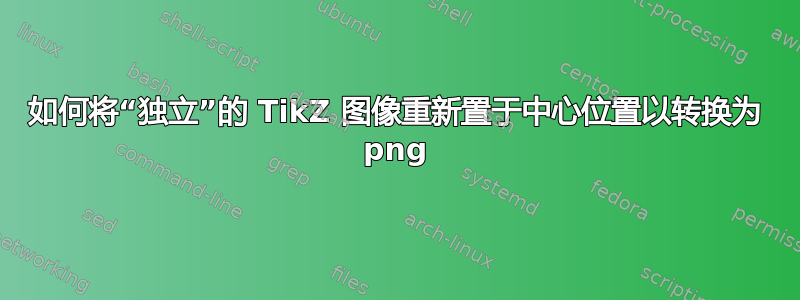
我正在尝试按照解释的方法构建 png 图标这里。下面是一个示例文件,由于部分边框被吃掉(整个上部和最右边部分的末端),因此需要进行调整。我应该如何修复这个问题?
\documentclass[convert={density=300,size=4600x800,outext=.png}]{standalone}
%\documentclass[a4paper]{article}
\usepackage{tikz}
\usepackage{calc}
\begin{document}
\pagestyle{empty}
% "Nouveau" in green f=23/4
\noindent\begin{tikzpicture}[x=0.25cm,y=0.25cm]
% Proportionality constants
\newcommand*{\jay}{0.25}%
\newcommand*{\kay}{2}%
\newcommand*{\hay}{3}%
\newcommand*{\way}{4}%
\newcommand*{\bay}{3.5}%
% Fundamental coordinates of points or vectors
\newcommand*{\xv}{-0.5*\jay}%
\newcommand*{\yv}{2*\jay}%
\newcommand*{\xfive}{0*\jay}%
\newcommand*{\yfive}{0*\jay}%
% Deduced coordinates
\pgfmathsetmacro{\xu}{\bay*\yv}%
\pgfmathsetmacro{\yu}{-\bay*\xv}%
\pgfmathsetmacro{\xsix}{\xfive+\way*\xu}%
\pgfmathsetmacro{\ysix}{\yfive+\way*\yu}%
\pgfmathsetmacro{\xten}{\xfive+2*\xv}%
\pgfmathsetmacro{\yten}{\yfive+2*\yv}%
\pgfmathsetmacro{\xeleven}{\xten+\way*\xu}%
\pgfmathsetmacro{\yeleven}{\yten+\way*\yu}%
\pgfmathsetmacro{\xone}{\xsix+\xv}%
\pgfmathsetmacro{\yone}{\ysix+\yv}%
\pgfmathsetmacro{\xtwo}{\xone+\xu}%
\pgfmathsetmacro{\ytwo}{\yone+\yu}%
\pgfmathsetmacro{\xthree}{\xtwo+\kay*\xu}%
\pgfmathsetmacro{\ythree}{\ytwo+\kay*\yu}%
\pgfmathsetmacro{\xtwentytwo}{\xtwo-\hay*\xv}%
\pgfmathsetmacro{\ytwentytwo}{\ytwo-\hay*\yv}%
\pgfmathsetmacro{\xtwentythree}{\xtwentytwo+\kay*\xu}%
\pgfmathsetmacro{\ytwentythree}{\ytwentytwo+\kay*\yu}%
\pgfmathsetmacro{\xseventeen}{\xtwentytwo-\xv}%
\pgfmathsetmacro{\yseventeen}{\ytwentytwo-\yv}%
\pgfmathsetmacro{\xeighteen}{\xseventeen+\kay*\xu}%
\pgfmathsetmacro{\yeighteen}{\yseventeen+\kay*\yu}%
\pgfmathsetmacro{\xseven}{\xtwo+\hay*\xv}%
\pgfmathsetmacro{\yseven}{\ytwo+\hay*\yv}%
\pgfmathsetmacro{\xeight}{\xseven+\kay*\xu}%
\pgfmathsetmacro{\yeight}{\yseven+\kay*\yu}%
\pgfmathsetmacro{\xtwelve}{\xseven+\xv}%
\pgfmathsetmacro{\ytwelve}{\yseven+\yv}%
\pgfmathsetmacro{\xthirteen}{\xtwelve+\kay*\xu}%
\pgfmathsetmacro{\ythirteen}{\ytwelve+\kay*\yu}%
\pgfmathsetmacro{\xfour}{\xthree+\hay*\yv}%
\pgfmathsetmacro{\yfour}{\ythree-\hay*\xv}%
\pgfmathsetmacro{\xnine}{\xfour+\yv}%
\pgfmathsetmacro{\ynine}{\yfour-\xv}%
\pgfmathsetmacro{\xfourteen}{\xfive+\xv-\yv}%
\pgfmathsetmacro{\yfourteen}{\yfive+\xv+\yv}%
\coordinate (A1) at (\xone,\yone);
\coordinate (A2) at (\xtwo,\ytwo);
\coordinate (A3) at (\xthree,\ythree);
\coordinate (A4) at (\xfour,\yfour);
\coordinate (A5) at (\xfive,\yfive);
\coordinate (A6) at (\xsix,\ysix);
\coordinate (A7) at (\xseven,\yseven);
\coordinate (A8) at (\xeight,\yeight);
\coordinate (A9) at (\xnine,\ynine);
\coordinate (A10) at (\xten,\yten);
\coordinate (A11) at (\xeleven,\yeleven);
\coordinate (A12) at (\xtwelve,\ytwelve);
\coordinate (A13) at (\xthirteen,\ythirteen);
\coordinate (A14) at (\xfourteen,\yfourteen);
\coordinate (A17) at (\xseventeen,\yseventeen);
\coordinate (A18) at (\xeighteen,\yeighteen);
\coordinate (A22) at (\xtwentytwo,\ytwentytwo);
\coordinate (A23) at (\xtwentythree,\ytwentythree);
\fill[fill=green] (A14) -- (A5) -- (A6) -- (A11) -- (A10) -- cycle;
\fill[fill=green] (A6) -- (A17) -- (A22) -- (A1) -- cycle;
\fill[fill=green] (A17) -- (A18) -- (A23) -- (A22) -- cycle;
\fill[fill=green] (A7) -- (A8) -- (A13) -- (A12) -- cycle;
%\draw (A23) -- (A4) -- (A8);
% \draw (A23) .. controls (A14) .. (A4);
\pgfmathsetmacro{\dee}{\hay*(veclen(\xv,\yv))}%
\pgfmathsetmacro{\deetwo}{(\hay+1)*(veclen(\xv,\yv))}%
\pgfmathsetmacro{\anglestart}{atan2(\xtwentythree-\xthree,\ytwentythree-\ythree)}%
\pgfmathsetmacro{\angletarget}{atan2(\xeight-\xthree,\yeight-\ythree)}%
\fill[fill=green] (A23) arc (\anglestart:\angletarget:\dee) -- (A13) arc (\angletarget:\anglestart:\deetwo) -- (A23);
%\draw[step=0.1cm,gray] (-1,0) grid (15,6);
%\draw [step=1cm] (-1,0) grid (15,6);
\coordinate (C1) at (3.4,5);
\coordinate (C2) at (4,4);
\coordinate (C3) at (5,3.6);
\coordinate (C4) at (6,4.5);
\coordinate (C5) at (7,4.7);
\coordinate (C6) at (8,4);
\coordinate (C7) at (8.6,3);
\coordinate (C25) at (9,2.7);
\coordinate (C8) at (10,2.4);
\coordinate (C9) at (11,2.8);
\coordinate (C10) at (11.5,2);
\coordinate (C11) at (12,1);
\coordinate (C12) at (12.4,0.3);
\coordinate (C13) at (12.6,0.3);
\coordinate (C14) at (12.2,1);
\coordinate (C15) at (11.7,2);
\coordinate (C16) at (11,3.1);
\coordinate (C17) at (10,2.6);
\coordinate (C18) at (9,2.9);
\coordinate (C26) at (8.2,4);
\coordinate (C19) at (8,4.3);
\coordinate (C20) at (7,4.9);
\coordinate (C21) at (6,4.7);
\coordinate (C22) at (5,3.8);
\coordinate (C23) at (4,4.2);
\coordinate (C24) at (3.6,5);
\filldraw plot [smooth cycle] coordinates { (C1) (C2) (C3) (C4) (C5) (C6) (C7) (C25) (C8) (C9) (C10)
(C11) (C12) (C13) (C14) (C15) (C16) (C17) (C18) (C26) (C19) (C20) (C21) (C22) (C23) (C24)};
\fill[fill=green] (A1) -- (A7) -- (A12) -- (A11) -- cycle;
% \draw [step=0.1cm] (-28,-4) grid (16,12);
%\draw [step=1cm] (-28,-4) grid (16,12);
% \draw (0,0) node {$\bullet$};
\draw (A5)++(-20,2.5) node[scale=3] {\sf\Huge\textcolor{green}{nouveau}};
\newcommand*{\xzed}{-140*\jay}%
\newcommand*{\yzed}{-10*\jay}%
\newcommand*{\xzedtwo}{50*\jay}%
\newcommand*{\dusttwo}{20*\jay}%
\coordinate (Z1) at (\xzed,\yzed);
\coordinate (Z2) at (\xzedtwo,\yzed);
\coordinate (Z3) at (\xzedtwo,\yzed+2*\dusttwo);
\coordinate (Z4) at (\xzed,\yzed+2*\dusttwo);
\draw (Z1) -- (Z2) arc(-90:90:\dusttwo) (Z3) -- (Z4) arc(90:270:\dusttwo) (Z1) ;
\end{tikzpicture}
\end{document}
答案1
你想要这样的东西吗?

代码中的主要问题在最后一行
\draw (Z1) -- (Z2) arc(-90:90:\dusttwo) (Z3) -- (Z4) arc(90:270:\dusttwo) (Z1) ;
半径\dusttwo太短,而不是20*\jay我使用的22*\jay(根据您的喜好进行调整)。您的命令绘制了两条路径,(Z1) -- (Z2) arc(-90:90:\dusttwo)后面跟着(Z3) -- (Z4) arc(90:270:\dusttwo) (Z1)。没有理由进行这样的划分,一条路径就足够了:
\draw (Z1) -- (Z2) arc(-90:90:22*\jay) coordinate (aux) -- (aux-|Z1) arc(90:270:22*\jay);
其他一些评论:
对于我来说,该代码无需\usepackage{calc}(不要将其与混淆\usetikzlibrary{calc},这既不是也没有必要)就可以工作。
如果您使用standalone类来进行隔离,tikzpicture则没有必要\pagestyle{empty},并且\noindent这会在最终结果中引入一点转变。
而且,如果你需要,你还可以引入一个border=...选项,在standalone剪辑结果之前会考虑该选项。我在这里没有用过,这只是信息。
\documentclass[convert={density=300,size=4600x800,outext=.png}]{standalone}
%\documentclass[a4paper]{article}
\usepackage{tikz}
%\usepackage{calc}
\begin{document}
\begin{tikzpicture}[x=0.25cm,y=0.25cm]
% Proportionality constants
\newcommand*{\jay}{0.25}%
\newcommand*{\kay}{2}%
\newcommand*{\hay}{3}%
\newcommand*{\way}{4}%
\newcommand*{\bay}{3.5}%
% Fundamental coordinates of points or vectors
\newcommand*{\xv}{-0.5*\jay}%
\newcommand*{\yv}{2*\jay}%
\newcommand*{\xfive}{0*\jay}%
\newcommand*{\yfive}{0*\jay}%
% Deduced coordinates
\pgfmathsetmacro{\xu}{\bay*\yv}%
\pgfmathsetmacro{\yu}{-\bay*\xv}%
\pgfmathsetmacro{\xsix}{\xfive+\way*\xu}%
\pgfmathsetmacro{\ysix}{\yfive+\way*\yu}%
\pgfmathsetmacro{\xten}{\xfive+2*\xv}%
\pgfmathsetmacro{\yten}{\yfive+2*\yv}%
\pgfmathsetmacro{\xeleven}{\xten+\way*\xu}%
\pgfmathsetmacro{\yeleven}{\yten+\way*\yu}%
\pgfmathsetmacro{\xone}{\xsix+\xv}%
\pgfmathsetmacro{\yone}{\ysix+\yv}%
\pgfmathsetmacro{\xtwo}{\xone+\xu}%
\pgfmathsetmacro{\ytwo}{\yone+\yu}%
\pgfmathsetmacro{\xthree}{\xtwo+\kay*\xu}%
\pgfmathsetmacro{\ythree}{\ytwo+\kay*\yu}%
\pgfmathsetmacro{\xtwentytwo}{\xtwo-\hay*\xv}%
\pgfmathsetmacro{\ytwentytwo}{\ytwo-\hay*\yv}%
\pgfmathsetmacro{\xtwentythree}{\xtwentytwo+\kay*\xu}%
\pgfmathsetmacro{\ytwentythree}{\ytwentytwo+\kay*\yu}%
\pgfmathsetmacro{\xseventeen}{\xtwentytwo-\xv}%
\pgfmathsetmacro{\yseventeen}{\ytwentytwo-\yv}%
\pgfmathsetmacro{\xeighteen}{\xseventeen+\kay*\xu}%
\pgfmathsetmacro{\yeighteen}{\yseventeen+\kay*\yu}%
\pgfmathsetmacro{\xseven}{\xtwo+\hay*\xv}%
\pgfmathsetmacro{\yseven}{\ytwo+\hay*\yv}%
\pgfmathsetmacro{\xeight}{\xseven+\kay*\xu}%
\pgfmathsetmacro{\yeight}{\yseven+\kay*\yu}%
\pgfmathsetmacro{\xtwelve}{\xseven+\xv}%
\pgfmathsetmacro{\ytwelve}{\yseven+\yv}%
\pgfmathsetmacro{\xthirteen}{\xtwelve+\kay*\xu}%
\pgfmathsetmacro{\ythirteen}{\ytwelve+\kay*\yu}%
\pgfmathsetmacro{\xfour}{\xthree+\hay*\yv}%
\pgfmathsetmacro{\yfour}{\ythree-\hay*\xv}%
\pgfmathsetmacro{\xnine}{\xfour+\yv}%
\pgfmathsetmacro{\ynine}{\yfour-\xv}%
\pgfmathsetmacro{\xfourteen}{\xfive+\xv-\yv}%
\pgfmathsetmacro{\yfourteen}{\yfive+\xv+\yv}%
\coordinate (A1) at (\xone,\yone);
\coordinate (A2) at (\xtwo,\ytwo);
\coordinate (A3) at (\xthree,\ythree);
\coordinate (A4) at (\xfour,\yfour);
\coordinate (A5) at (\xfive,\yfive);
\coordinate (A6) at (\xsix,\ysix);
\coordinate (A7) at (\xseven,\yseven);
\coordinate (A8) at (\xeight,\yeight);
\coordinate (A9) at (\xnine,\ynine);
\coordinate (A10) at (\xten,\yten);
\coordinate (A11) at (\xeleven,\yeleven);
\coordinate (A12) at (\xtwelve,\ytwelve);
\coordinate (A13) at (\xthirteen,\ythirteen);
\coordinate (A14) at (\xfourteen,\yfourteen);
\coordinate (A17) at (\xseventeen,\yseventeen);
\coordinate (A18) at (\xeighteen,\yeighteen);
\coordinate (A22) at (\xtwentytwo,\ytwentytwo);
\coordinate (A23) at (\xtwentythree,\ytwentythree);
\fill[fill=green] (A14) -- (A5) -- (A6) -- (A11) -- (A10) -- cycle;
\fill[fill=green] (A6) -- (A17) -- (A22) -- (A1) -- cycle;
\fill[fill=green] (A17) -- (A18) -- (A23) -- (A22) -- cycle;
\fill[fill=green] (A7) -- (A8) -- (A13) -- (A12) -- cycle;
%\draw (A23) -- (A4) -- (A8);
% \draw (A23) .. controls (A14) .. (A4);
\pgfmathsetmacro{\dee}{\hay*(veclen(\xv,\yv))}%
\pgfmathsetmacro{\deetwo}{(\hay+1)*(veclen(\xv,\yv))}%
\pgfmathsetmacro{\anglestart}{atan2(\xtwentythree-\xthree,\ytwentythree-\ythree)}%
\pgfmathsetmacro{\angletarget}{atan2(\xeight-\xthree,\yeight-\ythree)}%
\fill[fill=green] (A23) arc (\anglestart:\angletarget:\dee) -- (A13) arc (\angletarget:\anglestart:\deetwo) -- (A23);
%\draw[step=0.1cm,gray] (-1,0) grid (15,6);
%\draw [step=1cm] (-1,0) grid (15,6);
\coordinate (C1) at (3.4,5);
\coordinate (C2) at (4,4);
\coordinate (C3) at (5,3.6);
\coordinate (C4) at (6,4.5);
\coordinate (C5) at (7,4.7);
\coordinate (C6) at (8,4);
\coordinate (C7) at (8.6,3);
\coordinate (C25) at (9,2.7);
\coordinate (C8) at (10,2.4);
\coordinate (C9) at (11,2.8);
\coordinate (C10) at (11.5,2);
\coordinate (C11) at (12,1);
\coordinate (C12) at (12.4,0.3);
\coordinate (C13) at (12.6,0.3);
\coordinate (C14) at (12.2,1);
\coordinate (C15) at (11.7,2);
\coordinate (C16) at (11,3.1);
\coordinate (C17) at (10,2.6);
\coordinate (C18) at (9,2.9);
\coordinate (C26) at (8.2,4);
\coordinate (C19) at (8,4.3);
\coordinate (C20) at (7,4.9);
\coordinate (C21) at (6,4.7);
\coordinate (C22) at (5,3.8);
\coordinate (C23) at (4,4.2);
\coordinate (C24) at (3.6,5);
\filldraw plot [smooth cycle] coordinates { (C1) (C2) (C3) (C4) (C5) (C6) (C7) (C25) (C8) (C9) (C10)
(C11) (C12) (C13) (C14) (C15) (C16) (C17) (C18) (C26) (C19) (C20) (C21) (C22) (C23) (C24)};
\fill[fill=green] (A1) -- (A7) -- (A12) -- (A11) -- cycle;
% \draw [step=0.1cm] (-28,-4) grid (16,12);
%\draw [step=1cm] (-28,-4) grid (16,12);
% \draw (0,0) node {$\bullet$};
\draw (A5)++(-20,2.5) node[scale=3] {\sf\Huge\textcolor{green}{nouveau}};
\newcommand*{\xzed}{-140*\jay}%
\newcommand*{\yzed}{-10*\jay}%
\newcommand*{\xzedtwo}{50*\jay}%
\newcommand*{\dusttwo}{20*\jay}%
\coordinate (Z1) at (\xzed,\yzed);
\coordinate (Z2) at (\xzedtwo,\yzed);
\coordinate (Z3) at (\xzedtwo,\yzed+2*\dusttwo);
\coordinate (Z4) at (\xzed,\yzed+2*\dusttwo);
% \draw (Z1) -- (Z2) arc(-90:90:\dusttwo) (Z3) -- (Z4) arc(90:270:\dusttwo) (Z1) ;
\draw (Z1) -- (Z2) arc(-90:90:22*\jay) coordinate (aux) -- (aux-|Z1) arc(90:270:22*\jay);
\end{tikzpicture}
\end{document}


